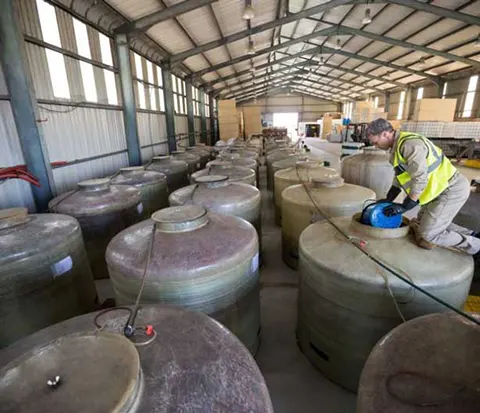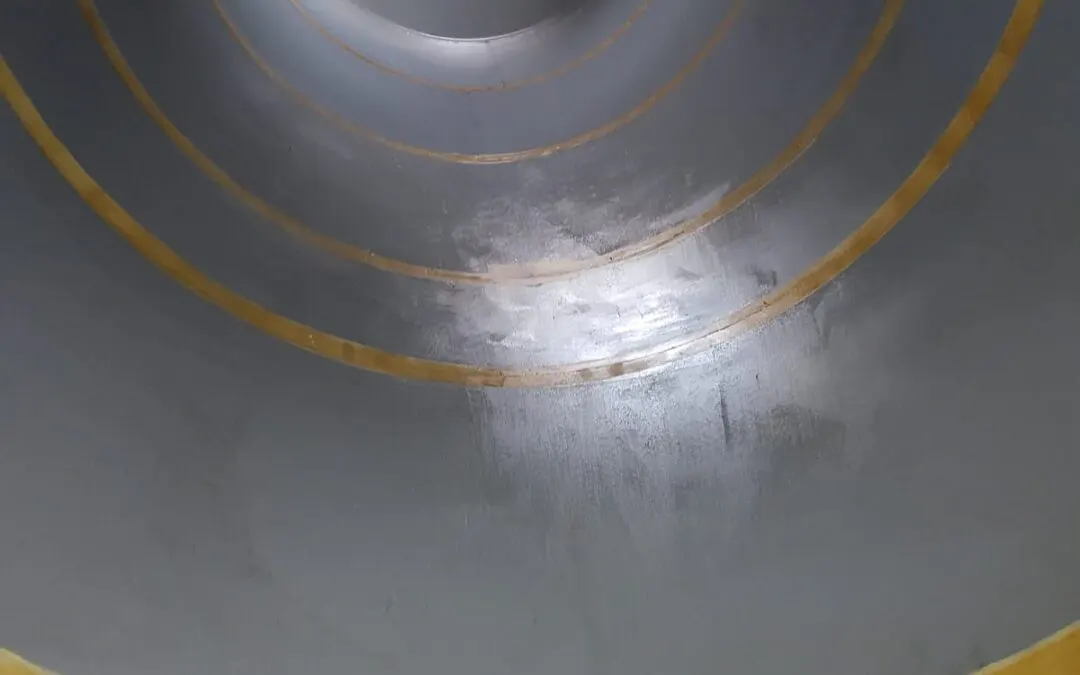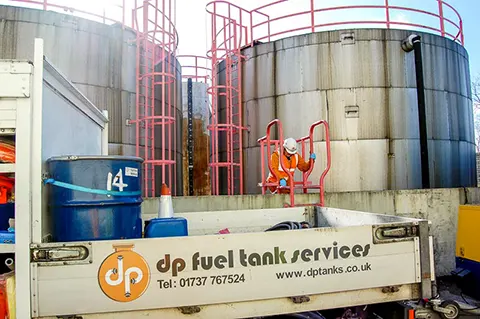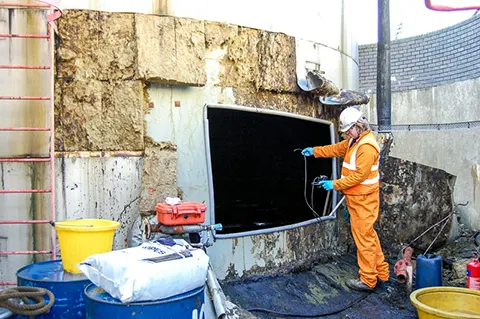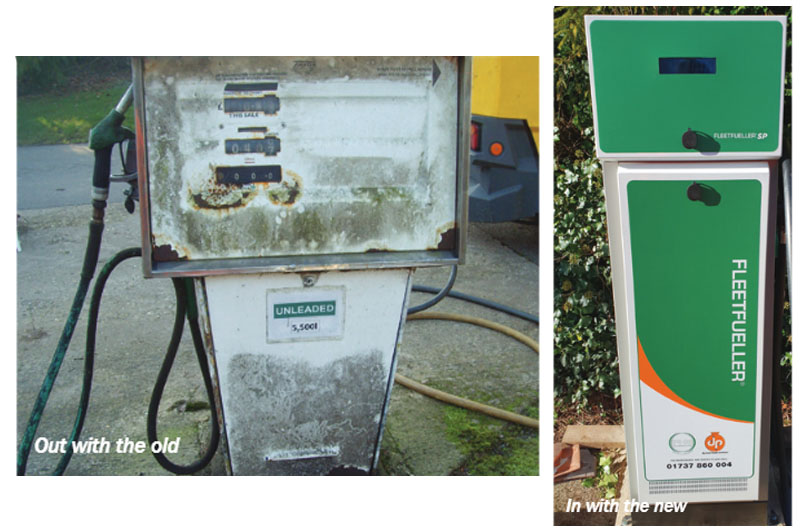Have you got a fuel contamination issue that needs to be addressed urgently? Our expertise can help resolve – Give us a call today
Fuel contamination can be caused by microbes found in water, dirt, sand, and algae. It is more likely to happen in favourable circumstances where bacteria can grow and thrive, particularly while being stored.
It can be difficult to spot, but if left untreated then contaminated fuel can cause serious and lasting damage to engines, fuel systems, and the tanks themselves.
Fuel is something we rely on during our daily lives, which means the consequences can be serious if it is contaminated.
What happens if diesel is contaminated?
One of the most common fuels stored in tanks is diesel, used of course in a wide range of sectors to power engines and generators.
When it gets contaminated, it is known as diesel bug. If the fuel oxidises and begins to break down, it can no longer be used. Not only can this process cause tank corrosion, it can also result in financial losses due to wasted fuel.
When contaminated fuel is put into vehicles, it will result in engine deposits, black smoke and engine performance issues. In agricultural settings, it can lead to machinery failure which risks being disastrous for business.
Not only that, if contaminated diesel comes into contact with soil, especially where a badly corroded tank starts to leak, it can have severe consequences for the environment –impacting soils, and leading to potential prosecution by the Environment Agency.
How do you know if your fuel is contaminated?
It can be difficult to determine whether fuel has become contaminated, until it is too late.
However, there are signs to look out for that can indicate if it is.
If contaminated fuel is put into a vehicle, it is common to experience performance issues and the engine might even stop working completely.
Because diesel fuel is meant to be clear, then discolouration into a cloudy colour could be among the first warning signs of fuel contamination.
Evidence of corrosion, such as damage to a storage tank’s structure, need to be taken seriously too. It might be an indication of fuel contamination, and brings with it the potential for leaks that can cause environmental damage.
Another sign of fuel contamination is sludge gathering at the bottom of a storage tank that clogs filters and impedes the flow of fuel. This can be spotted when pumps connected to the storage tank struggle to dispense fuel cleanly.
How do you test for fuel contamination?
Although some people are aware of the signs of fuel contamination, it can be difficult to get an accurate diagnosis – especially in instances where it’s impossible to obtain a view of the bottom of a storage tank, for example.
Thankfully, an inspection can be carried out to see whether fuel contamination has happened.
These should be done by experts who can collect samples from the top, middle and bottom of a fuel storage tank.
Not only does this save you from buying the relevant equipment and materials yourself, but it also means that you can get the job done safely by people you can trust.
What is the main cause of fuel contamination?
Fuel contamination often occurs when water enters the tank and contributes to an ideal environment for microbes to multiply.
The likelihood of fuel contamination also increases if fuel has been left in the tank for too long, if low quality fuel is stored in the tank, and if the tank itself is faulty in some way.
A poorly installed tank, or one that’s constructed from cheap, or low-quality materials, can lead to fuel becoming contaminated.
All of these scenarios prompt the growth of bacteria that contaminates stored fuel.
Can you treat contaminated diesel fuel?
Contaminated fuel is an issue that plagues many people in various sectors.
For that reason, it is important to know how to fix contaminated fuel and reduce the risk of lasting damage.
The good news is that contaminated diesel fuel can be treated, and we recommend contacting trained professionals to assess and then clean affected storage tanks.
As experts in their chosen field, the team at DP Tanks has established a reputation for outstanding customer service.
Not only does our fuel tank cleaning service get rid of contaminants, it also futureproofs your tank by ensuring fuel inside it at low risk of repeat contamination.
After cleaning, we always advise our customers to keep their fuel tanks in optimum condition by conducting regular fuel tests, and by keeping empty space (due to condensation) in the tank to a minimum.
Whether your storage facilities are above ground, or below, we have a solution.
DP Tanks is also an environment-conscious operator, and we attempt to recycle water used as part of our service for future cleaning jobs.
Concerned that your stored fuel might be contaminated? Or want advice on what do next if it already is?
Be sure to contact us today and discover how we can help.
